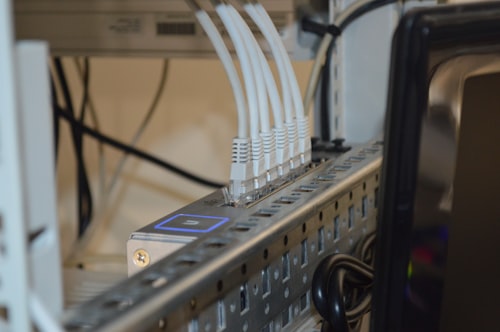Welcome to our comprehensive guide on how to check email effectively, a skill that is essential for effective communication and staying connected in today's digital age. As an expert in the field, I will provide you with valuable insights and best practices for checking and managing your email accounts. Whether you're a professional, a student, or simply an individual who wants to optimize their email experience, mastering the art of checking email is crucial for success in the digital world.
Why Checking Email Matters
Email has revolutionized the way we communicate, both personally and professionally. Checking email regularly and efficiently brings several benefits:
1. Stay Updated and Informed
Emails serve as a primary channel for receiving important updates, news, and information from various sources. By checking your email regularly, you can stay updated on the latest developments in your personal and professional life.
2. Communicate and Collaborate
Emails enable seamless communication and collaboration with colleagues, clients, friends, and family. By regularly checking your email, you can respond promptly, address inquiries, and engage in meaningful discussions.
3. Efficient Task Management
Emails often contain action items, tasks, and deadlines. By checking your email regularly and organizing your inbox effectively, you can manage your tasks efficiently, prioritize your work, and meet deadlines.
4. Personal and Professional Opportunities
Emails can bring valuable opportunities, whether it's a job offer, a networking connection, or an invitation to collaborate on a project. By checking your email consistently, you can seize these opportunities and nurture important relationships.
Best Practices for Checking Email
To make the most of your email management routine, consider implementing these best practices:
1. Establish a Routine
Set a specific time or times during the day to check your email. This prevents constant interruptions and allows you to focus on other tasks without neglecting your email inbox. Find a schedule that works best for you.
2. Prioritize and Filter
When checking your email, prioritize important messages and filter out spam or low-priority emails. Use filters and folders to automatically categorize incoming emails and ensure that you focus on what requires immediate attention.
3. Respond in a Timely Manner
Strive to respond to important emails promptly. If an email requires more time or thought to respond, acknowledge receipt and let the sender know when they can expect a detailed reply. This demonstrates professionalism and effective communication.
4. Organize and Archive
Create folders or labels to organize your emails. Use meaningful names to categorize different types of emails, such as work, personal, or projects. Regularly archive or delete emails that are no longer relevant to maintain a clutter-free inbox.
Common Questions about Checking Email
1. How often should I check my email?
The frequency of checking email depends on your personal preferences, work requirements, and the volume of emails you receive. It is generally recommended to check your email at least
once or twice a day to stay updated and respond in a timely manner.
2. How can I prevent email overload?
To prevent email overload, implement email management strategies such as unsubscribing from unnecessary mailing lists, setting up filters, and utilizing email organization tools. These practices can help reduce clutter and prioritize important messages.
3. Are there tools to help manage and check email?
Absolutely! There are numerous email clients and productivity tools available that offer features to enhance your email experience. These tools provide functionalities such as advanced search, email scheduling, reminders, and integrations with other applications.
Mastering Email Communication for Seamless Connectivity
Checking email is not just a routine task; it is a skill that, when mastered, can greatly improve your communication, productivity, and connectivity. By following best practices, organizing your inbox, and staying on top of important messages, you can harness the power of email to streamline your personal and professional life.



